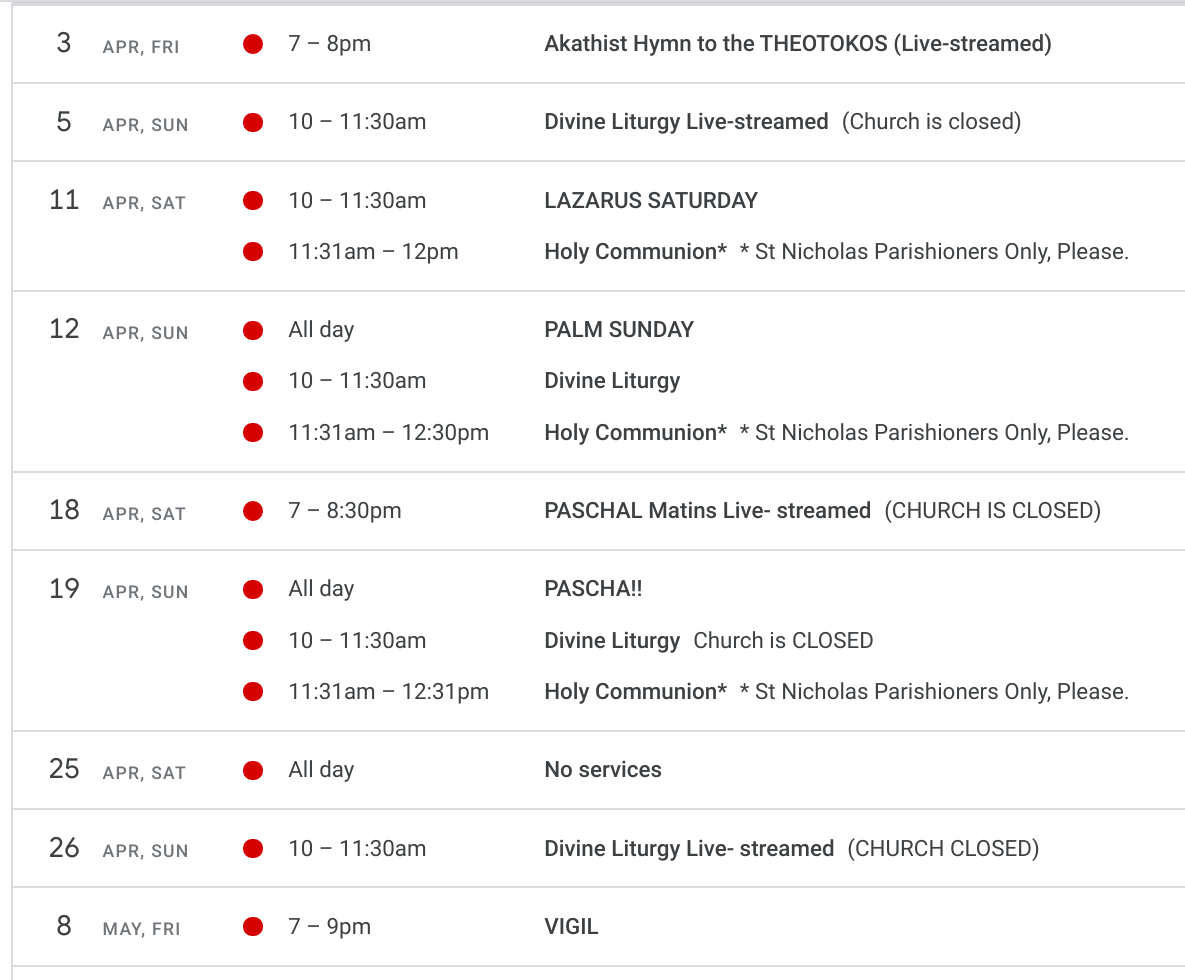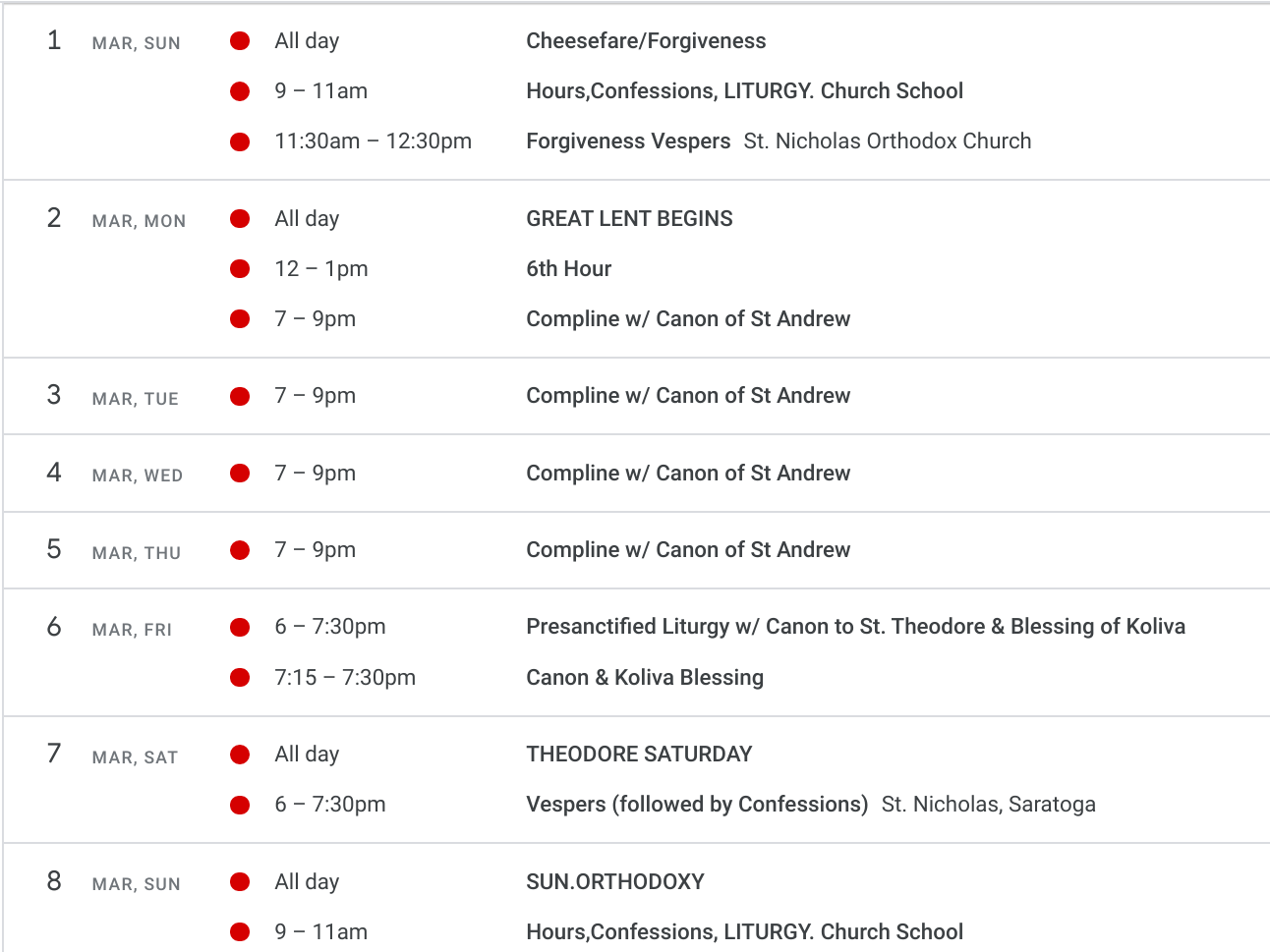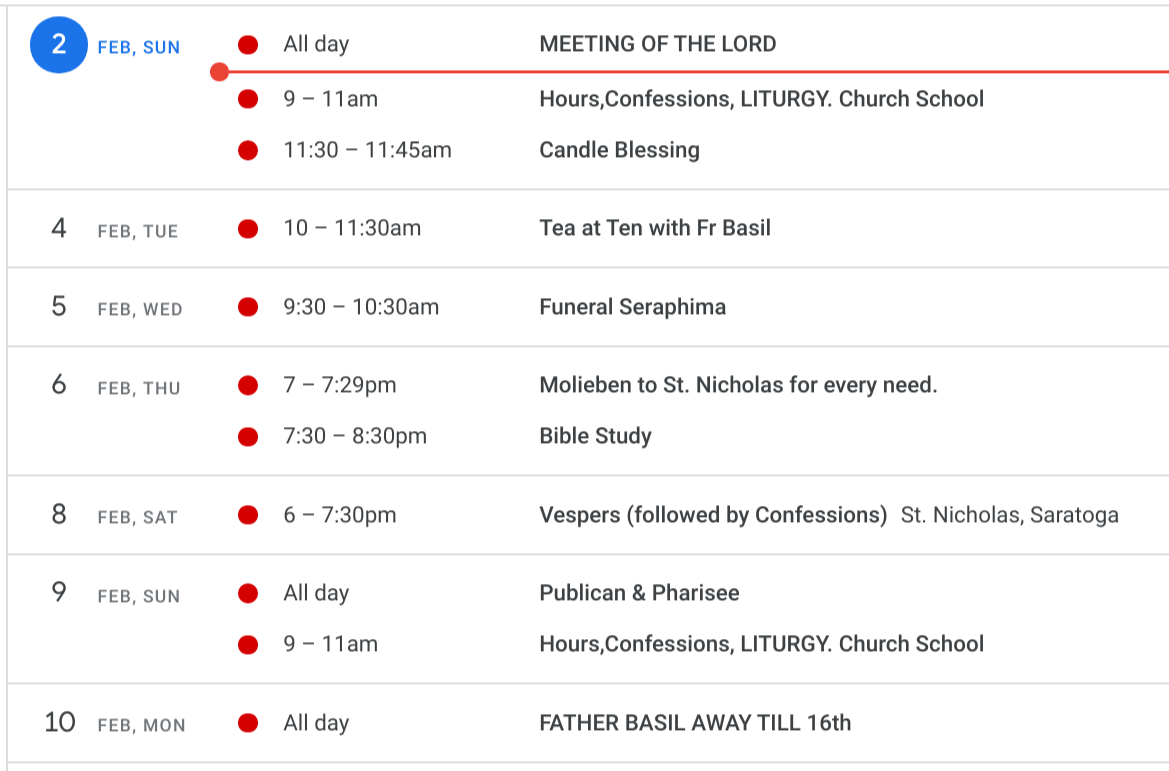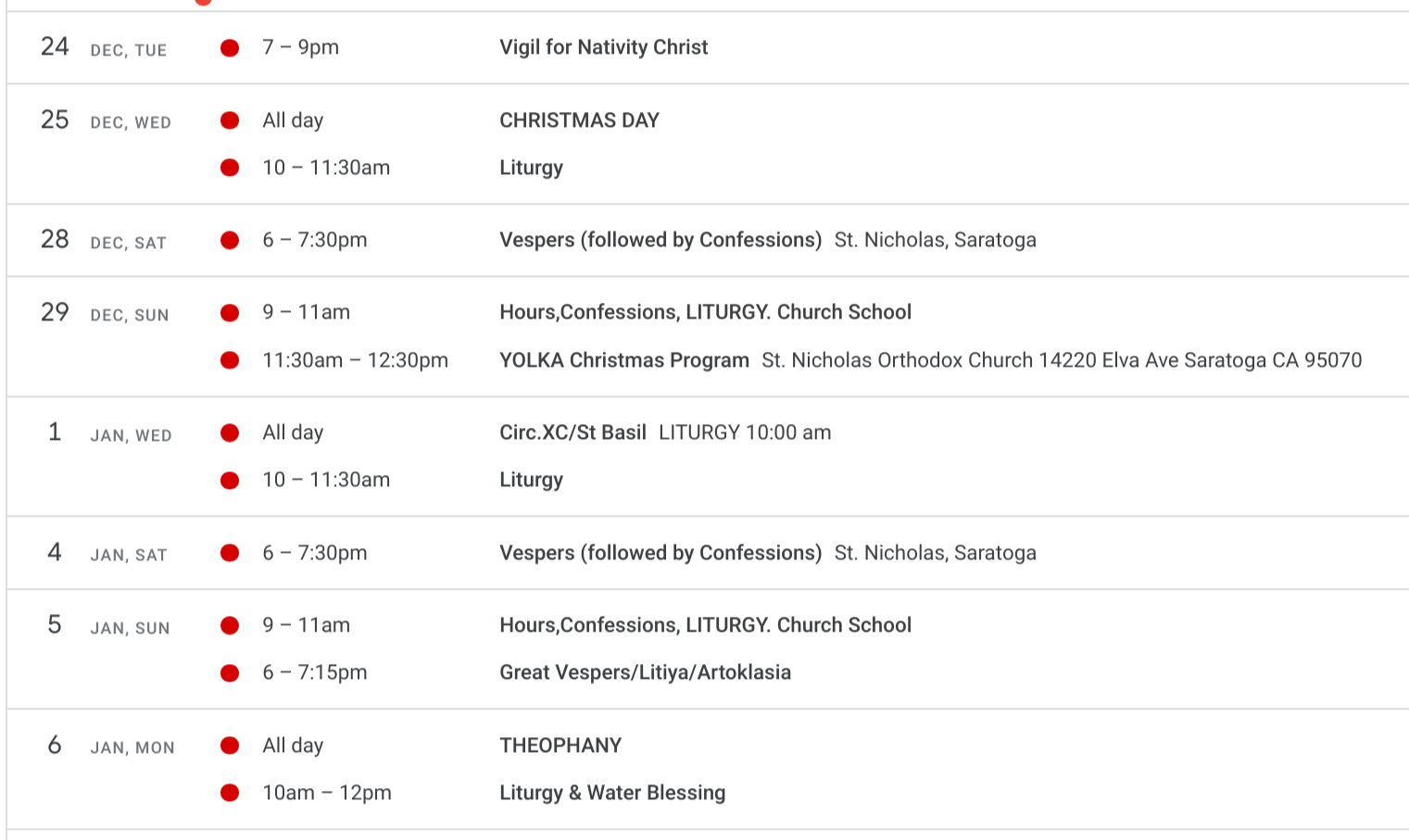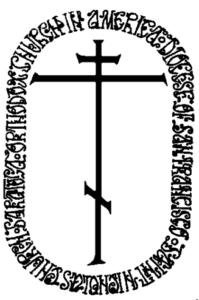
.
St. Nicholas Orthodox Church
14220 Elva Avenue
Saratoga, California 95070
(408) 867 – 0628
www.stnicholassaratoga.org
April 19, 2020
Beloved Brothers and Sisters,
Christ is Risen!
What a strange and unusual season this has been! Every year I send out this Paschal letter, which is also an appeal to “give a little extra please, if you can.” But this year it’s impossible for us to procure the lovely Paschal letterhead paper, or the specially printed envelopes, etc. But thus is our life for the time being. (Sigh). So instead of focusing on what we don’t have let’s think about what we do have. The all-glorious and radiant day of Christ’s Resurrection is upon us, and we might ask ourselves, “how can we sing the Lord’s song” in quarantine? Well, we can! We may be limited in what we can do, yes. We have have constraints, yes, but we can still sing! We can sing in our homes, we can sing in the shower! We can sing in our back yards, we can sing in our cars! We can sing while socially distanced, and we can sing while we’re washing our hands. In our joy we can rejoice with the saints who “rejoice in glory and exalt on their beds” (Psalm 148/149 LXX). Our hearts can never be closed and our joy can never be restrained. This is the Day of Resurrection, let us be radiant O people! On this day mankind rejoices in the defeat of death and the overthrow of its power. On this day we see the darkness of night swallowed up by the Sun. On this day the Church bathes in the light of the empty tomb and the heart of each believer is filled to the brim with hope of eternal life. The worry and disappointment coming from this world are supplanted by the sure and manifest demonstration of God’s love for us. For “as Christ was raised up from the dead by the glory of the Father, even so, we also should walk in newness of life” (Romans 6:5). Christian Family! No virus, no pandemic, no “house-arrest” can separate us from the great gladness that this Feast of Feasts brings! Please pay heed to the Parish Website for any services which we may be allowed to do, and how we can do them. “Let not your hearts be troubled!” (John 14:1). Christ is risen, and fear of death crumbles! Christ is risen, and despair is replaced by hope! Christ is risen, and the meaning of our lives is made clear! Christ is risen, and uncertainty is replaced by confidence! Christ is risen, and gloominess is replaced with a big, BIG smile!
As we celebrate these bright and saving days, let us give thanks to God for His great kindness and mercy toward us, and say the words so dear to us all, “Christ is Risen! Indeed He is Risen!”
With love in our Risen Lord,
Archpriest Basil Rhodes and Family
The St. Nicholas Parish Council
The Choir
The Church School


